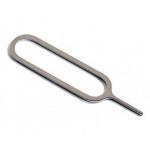Ege history 1914 1918. Collection of ideal social studies essays
1914-1918 - the period of Russia's participation in the First World War.
On June 28, 1914, Franz Ferdinand, heir to the Austro-Hungarian throne, was assassinated in Sarajevo. This led to the attack of Austria-Hungary on Serbia. Russia supported Serbia in this war, Germany supported Austria-Hungary. August 1, 1914 Germany declared war on Russia. Russia began hostilities without completing the mobilization. The 1st and 2nd Russian armies under the command of generals P.K. Rennenkampf and A.V. Samsonova entered the territory of East Prussia. The Southwestern Front under the command of General N.I. Ivanov carried out a successful offensive in Galicia, inflicting a defeat on the Austrians, which saved Serbia from defeat. In Prussia, the Russian armies were defeated, but this offensive forced the Germans to transfer part of their forces there from the western front, which saved France from defeat and thwarted the German plan for a "blitzkrieg".
In 1915, Germany launched an offensive on the eastern front, seeking to defeat Russia. In April-June 1915, Russian troops were forced out of Galicia, and in June-August 1915 - from Poland, but Russia was not defeated. On August 10, 1915, Nicholas II assumed the duties of Commander-in-Chief of the Russian Army. At the same time, in August 1915, special conferences for the defense of the state were created in Russia.
In May-July 1916, the offensive of the Southwestern Front against the Austrian troops ("Brusilovsky breakthrough") took place. The Austrian army was defeated. In November 1916, the Russian command planned an operation to seize the Black Sea straits, which, by agreement with Britain and France, were to go to Russia after the war. However, due to the unsuccessful entry into the war of Romania, the operation was postponed.
In February 1917, a revolution took place in Russia. Nicholas II abdicated. The Provisional Government that came to power announced the continuation of the war until victory. On June 1830, 1917, an attempt was made to attack on the Southwestern Front, which failed due to a drop in discipline in the Russian troops. After the failure of the June offensive, there were no major operations on the Russian-German front in 1917.
In October 1917 the Bolsheviks overthrew the Provisional Government. On October 26, 1917, the Second All-Russian Congress of Soviets adopted a Decree on Peace, in which it proposed that all belligerent states begin peace negotiations. On March 3, 1918, a peace treaty was signed in Brest between Russia and Germany with its allies. Russia lost the Baltic States, Belarus, Ukraine, Finland, Karsk and Batumi regions, and was obliged to pay Germany 6 billion marks indemnity.
Historians, in particular A. A. Danilov, estimate the period 1914-1918. generally negative. Russia was drawn into a world war for which it was not prepared. The defeat of the Russian army and the loss of authority by the ruling circles led to a new round of confrontation between the government and society, which resulted in the revolution of 1917. As a result, Russia was not among the victorious countries in the war of 1914-1918.
- < Назад
- Next >
USE. Historical essay
USE. Historical essay 1019-1054 (434)
This period refers to the history of Ancient Russia, covering the years of the reign of the Grand Duke of Kyiv Yaroslav the Wise. Among the most important events and processes of this...
USE. Historical essay 1078-1093 (502)
1078-1093 - the period of the third princely strife in Kievan Rus. Before his death, Yaroslav the Wise established the order of succession to the Grand Duke's throne by his sons. According to the will of Yaroslav ...
USE. Historical essay 1237-1480 (810)
This period refers to the time of the political fragmentation of the Russian lands and the process of formation of the national Russian state. It is associated with such a historical...
USE. Historical essay 1425-1453 (410)
This period is the time of the internecine war of the descendants of Dmitry Donskoy in the Moscow principality, which received the name “Shemyakina Troubles” among contemporaries. This conflict is part...
USE. Historical essay 1632-1634 (522)
A short period in the early 1930s 17th century associated with such a foreign policy event as the Smolensk War. The causes of the war stem from the Time of Troubles, when as a result ...
USE. Historical essay 1730-1740 (642)
This period is part of the era of "palace coups", it covers the reign of Empress Anna Ivanovna. Among the most important events of this period is an attempt ...
USE. Historical essay 1813-1825 (877)
The period under review is associated with the development of Russian society after the country's victory in the Patriotic War of 1812 and the defeat of Napoleonic France in foreign campaigns...
Caricature of European powers on the eve of World War I
1914 - 1918 - the period of participation of the Russian Empire in the First World War.
Start of World War I
The reason for the outbreak of the First World War was the assassination in Sarajevo of the heir to the throne of Austria-Hungary, Franz Ferdinand, by a Serbian terrorist. After the terrorist attack, the emperor of Austria-Hungary put forward an ultimatum to the Serbian government, and after Serbia refused to accept its terms, he declared war on it. Russia supported Serbia and announced mobilization. Austria-Hungary, in turn, enlisted the support of Germany, and on August 1, 1914, the German Empire declared war on Russia.
Fighting on the Eastern Front

Russian army in World War I
Fighting in 1914
In 1914, the main hostilities unfolded on the Western Front. Germany concentrated the main forces against France, and Russia did not have time to complete the mobilization and was faced with a shortage of ammunition.
In the summer of 1914, the 1st and 2nd Russian armies, commanded by Generals Rennenkampf and Samsonov, launched an offensive against East Prussia. The Southwestern Front under the command of General Ivanov completed a successful offensive, capturing Galicia and defeating the troops of Austria-Hungary, thereby saving Serbia from defeat by the superior forces of the Austrians.
Fighting in 1915
In 1915, Germany transferred the main forces to the eastern front, seeking to withdraw Russia from the war. In April-June 1915, Russian troops were forced out of Galicia, and in June-August 1915 - from Poland, but Russia was not defeated. On August 10, 1915, Nicholas II removed from command Prince Nikolai Nikolayevich, who was popular among the troops, and assumed the duties of Commander-in-Chief of the Russian army, which subsequently had a negative impact on the authority of the emperor.
Fighting in 1916
In May-July 1916, the Brusilovsky breakthrough took place - the successful offensive of the Russian army in Galicia against the Austrians. In the same year, Romania entered the war with the Central Bloc, but was almost immediately defeated by the Austrian troops, which only worsened the situation on the Eastern Front.
Events of 1917
In 1917, a revolution broke out in Russia. The emperor announced his abdication from the throne. The interim government, which replaced the emperor, told the allies to continue the war with the Central Powers until victory. In June 1917, Russia launched an offensive against Austria-Hungary, but due to the collapse of the army and revolutionary propaganda, it ended in failure. After the defeat of the Russian troops and the complete disintegration of the army, large-scale operations at the front were no longer carried out.
The results of the First World War in Russian history
The defeats of the Russian army and the unsuccessful decisions of the imperial government led to public discontent, which resulted in the 1917 revolution. As a result, Russia emerged from the period of 1914 - 1918 defeated in the war, with a destroyed statehood and the beginning of a revolution.
Estimates of the period 1914 - 1918 by historians
Russian historians, for example, A. A. Danilov, assess the period 1914-1918 - the period of the First World War, mostly negatively. Russia was drawn into a world war, for which it was poorly prepared and in which it did not have definite goals.
Since1914 to 1918 Our state took part in the First World War. We single out the following two events within this period. Firstly, this is the acceptance by Emperor NicholasIIcommand of the armed forcespost of Supreme Commander - in 1915. Secondly, thisimplementation of the Russian offensive May-July 1916played an important role in the first event.Emperor Nicholas II , whichlaid upon himself full responsibility for Russia's actions on the fronts. Having removed from this post the Grand Duke Nikolai Nikolaevich, he had all the powersconcentrated in their hands. The emperor almost constantlywas in Stavka, wheredecided issues of front management, based on the opinion of their military leaders.
An important role in the second event was played by GeneralA. A. Brusilov , whichorganized and ensured the success a powerful breakthrough of the Austro-Hungarian positions on the Southwestern Front.
We single out the followingcause and effect relationships within this period.
Creation of a network of military-industrial committees in the country under the leadership of the industrialist and banker P. P. Ryabushinskymade it possible to provide the mobilization of industry for military needs and the continuation of hostilities.
Aggravation of socio-economic contradictions caused by a long and exhausting war, dissatisfaction with the policy of tsarism, population fatigue from the warled to the revolution of 1917 ., during which NicholasIIhad to abdicate.
Characterizingsignificance this period in the history of our country, we note the following. The First World War for all its participants, including Russia, took on a protracted character. During this period, the political and socio-economic system of the state was tested, unable to cope with the challenges of wartime. For Russia, this turned into a civilizational catastrophe, as a result of which the monarchy collapsed and the state disintegrated. The ensuing Civil War split society into several warring factions, led to significant casualties, and exacerbated socio-economic problems. According to historians, if it were not for the First World War, which so undermined the position of tsarism, then there might not have been a revolution in Russia.
Ultimately, in these conditions, factors developed that contributed to the coming to power and the establishment of a political regime of a decisive, ready for radical transformation, political force, which became the Bolshevik Party. This opened the way to the establishment of a one-party political regime, the elimination of free-thinking, which will become a distinctive feature of the Soviet state, practically throughout its entire existence.
1914-1918
Period 1914-1918 one of the most difficult periods in the history of Russia. One of the main events of that time was the First World War, which exacerbated the contradictions within Russian society. A nationwide crisis erupted in the country, it covered all aspects of society: in politics, this is a “ministerial leapfrog” - frequent changes of ministers, criticism of the government by the IV State Duma, the creation« Progressive Bloc" (1915)coalitions of the majority of the Duma factions demanding the creation of a government of “people's confidence; in the economy: a decline in production, in the social sphere: an increase in strikes of workers and unrest among peasants. All this led the country to the Great Revolution of 1917, the overthrow of the monarchy and the coming to power of the Bolsheviks.
The First World War began in the summer of 1914. The reason for it was the assassination of Frans Ferdinand, heir to the Austro-Hungarian throne, in the city of Sarajevo. By the beginning of the war, 2 opposing blocs had formed in the world: the Triple Alliance and the Entente, which included Russia. The military campaign of 1914 showed that the war would be protracted.The 1915 campaign was unsuccessful for Russia, and as a result, Nicholas II decided to head the Supreme High Command. The 1916 campaign was more successful for Russia.A.A. played a huge role in this. Brusilov. The offensive he led went down in history under the name "Brusilovsky breakthrough." In May 1916, his troops broke through the enemy defenses in several places at once and advanced 150 km to the West.The consequence of the Brusilov breakthrough was the cessation of German attacks on Verdun and the transfer of reinforcements to the eastern front.
The most important events of the period from February to October were the April, June and July political crises of the Provisional Government, which came to power after the abdication of Nicholas 2 from the throne, the defeat of the Kornilov region. These political crises were the stages of the growing national crisis in the country. The revolution developed rapidly. The Bolshevik Party, headed by V. I. Lenin, gained great popularity in the country. In the course of the struggle, Lenin formulated the main strategy of the party, slogans understandable to the people were put forward: “Land to the peasants!”, “Factories to the workers!”, “Peace to the peoples”!October 25, 1917 IN AND. Lenin, together with his associates, organizes an uprising and seizes power. On January 5, the Constituent Assembly is convened, but it refuses to recognize the decrees of the Bolsheviks, so Lenin and the Bolsheviks disperse it. These actions of the Bolsheviks lead to the beginning of the civil war in Russia.
For Russia, due to internal problems caused by the revolution, the First World War ended with the signing of the Treaty of Brest-Litovsk on March 3, 1918.. After the Bolsheviks came to power, Trotsky became People's Commissar for Foreign Affairs.Participating in separate negotiations with the powers of the “quadruple bloc”, he put forward the formula “we stop the war, we don’t sign peace, we demobilize the army”, which was supported by the Bolshevik Central Committee(V.I. Lenin was against it). Somewhat later, after the resumption of the offensive of the German troops, Lenin managed to achieve the adoption and signing of the conditions of the Brest Peace, which was difficult for Russia.
The First World War was a great test for Russian society, changing its economy, politics, social psychology and individual consciousness of people. Most historians are of the opinion that there is a direct connection between the events of August 1, 1914 and the death of the monarchy in February 1917 in Russia.As the historian A.P. Zhilin wrote: “The war led to the collapse of the most powerful European states and the formation of a new geopolitical situation in the world.” Separate withdrawal of Russia from the war led to the intervention of the Antanese countries during the civil war on the side of the white movement and to the isolation of Soviet Russia from summing up the results of the war.
On the topic: methodological developments, presentations and notes
1914-1918 1st World War 9 class test
It is good to use the material when testing knowledge on the topic "World War 1" in both the 9th and 11th grades. All the main dates, events and information about the main characters and heroes of the war are contained ....
Crossword "The First World War 1914-1918"
The First World War (July 28, 1914 - November 11, 1918) is one of the largest armed conflicts in the history of mankind. This name was established in historiography only after...
Secondary general education
Line UMK I. L. Andreev, O. V. Volobueva. History (6-10)
Russian history
World War I: writing a historical essay for the Unified State Examination
On the occasion of the centenary of the end of the First World War, we present to your attention an analysis of the essay on the Unified State Examination in History - 2019.The participation of the Russian Empire (after the abdication of Nicholas II of the Russian Republic) in the First World War lasted from August 1, 1914 to March 3, 1918.
Indication of events (phenomena, processes)
Russian troops led by General P.K. Rennenkampf defeated the German army at Gumbinen in 1914.
In 1915, special commissions were created in the Russian Empire: special meetings on defense, fuel, food and transport.
The Congress of Representatives of Trade and Industry in 1915 initiated the creation of military-industrial committees (MIC).
In the summer of 1915, the Central Military-Industrial Complex was created, headed by the leader of the Octobrists, A. I. Guchkov.
The unification of the Duma parties (from moderate right-wing nationalists to the Cadets) into the Progressive Bloc took place in August 1915.
In 1916, the Russian troops managed to carry out a successful offensive operation under the command of General A. A. Brusilov, called the Brusilovsky Breakthrough.
Historical figures and their role
On July 29, 1914, Nicholas II sent a telegram to Wilhelm II, in which he proposed that the Austro-Serbian issue be referred to the International Court of Arbitration in The Hague. Wilhelm II did not respond to this proposal.
On August 2, 1914, Nicholas II prepared a manifesto on the war, as well as a royal decree in which he appointed Grand Duke Nikolai Nikolayevich as Supreme Commander.
In December 1916, G. E. Rasputin, close to the royal family, was killed by Grand Duke Dmitry Pavlovich, together with Prince F. F. Yusupov and the leader of the Black Hundreds, V. M. Purishkevich.
On December 17, 1916, Nicholas II by his decree interrupted the work of the State Duma until February of the following year. The State Duma was never convened again.
On April 18, 1917, Foreign Minister P. N. Milyukov addressed the Allies with a note, promising that Russia would fight until victory.
Causal relationships
Already by 1915, the tsarist government was unable to stop the economic crisis and conduct successful military operations, which prompted the liberal-bourgeois public to lay claims to power (creation of the military-industrial complex, etc.).
The increase in production in the military industry by 1916 led to the fall of other industries, due to a shortage of metals and fuel.
The active mobilization of the male peasant population had a negative impact on the state of agriculture: working men and draft power (horses) were taken from the village to the front, which worsened the cultivation of fields, harvesting, etc.
The decline of agriculture and the beginning of the transport crisis gave rise to a sharp deterioration in the food situation in the large cities of the Russian Empire.
The “Progressive Bloc” essentially became an opposition parliamentary group that opposed the tsarist government, and, moreover, had a majority in the Duma, which was the result of a growing crisis of power.
The hard trench life in everyday life, diseases and epidemics contributed to the decline in the morale of the soldiers.
Assessment of the impact of events on the further history of Russia
Participation of Russia in the First World War in 1914-1916. led to a severe economic crisis in the country, which, combined with the military defeats of the army and the unwillingness of the emperor to change anything in the government of the country, led to a strong decline in the authority of the tsarist government, both in the eyes of the common people and political elites: the element of the people was ready to sweep away a monarchy consecrated by centuries of tradition.





